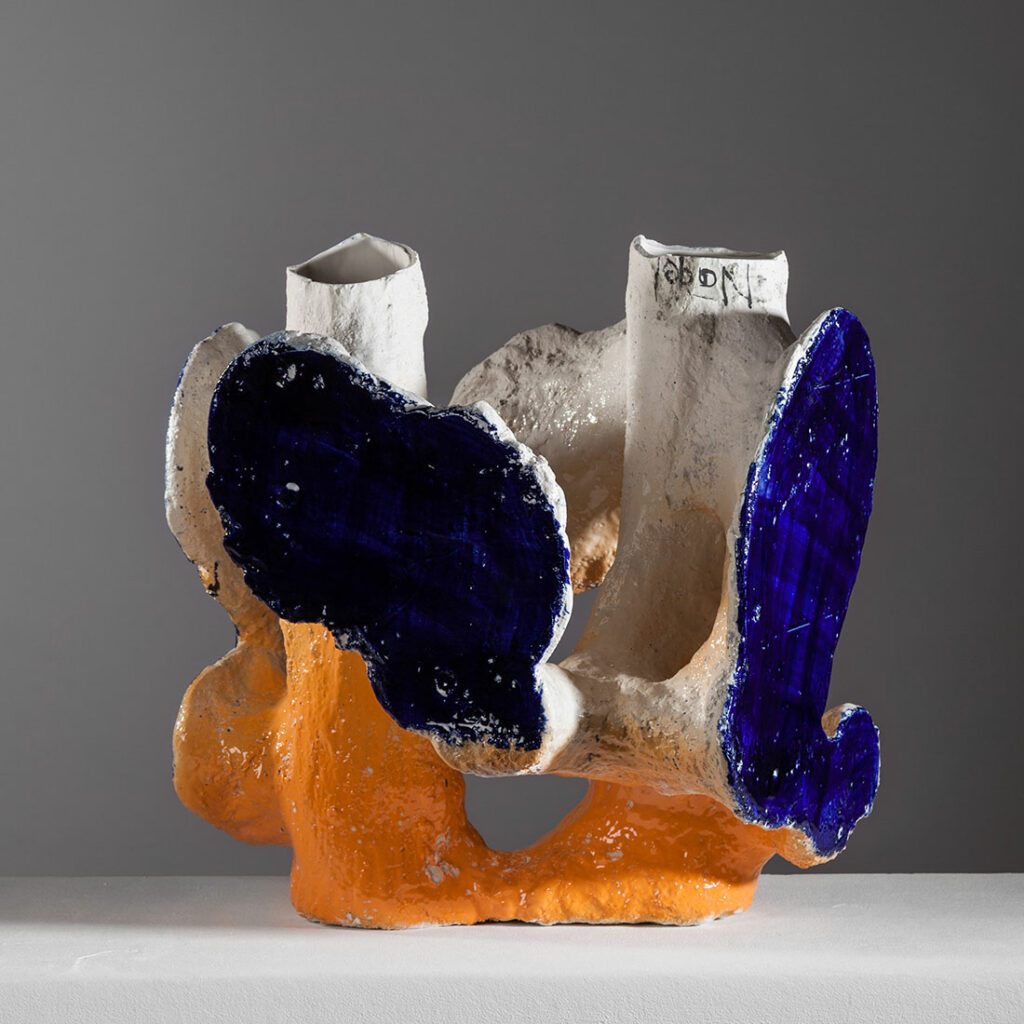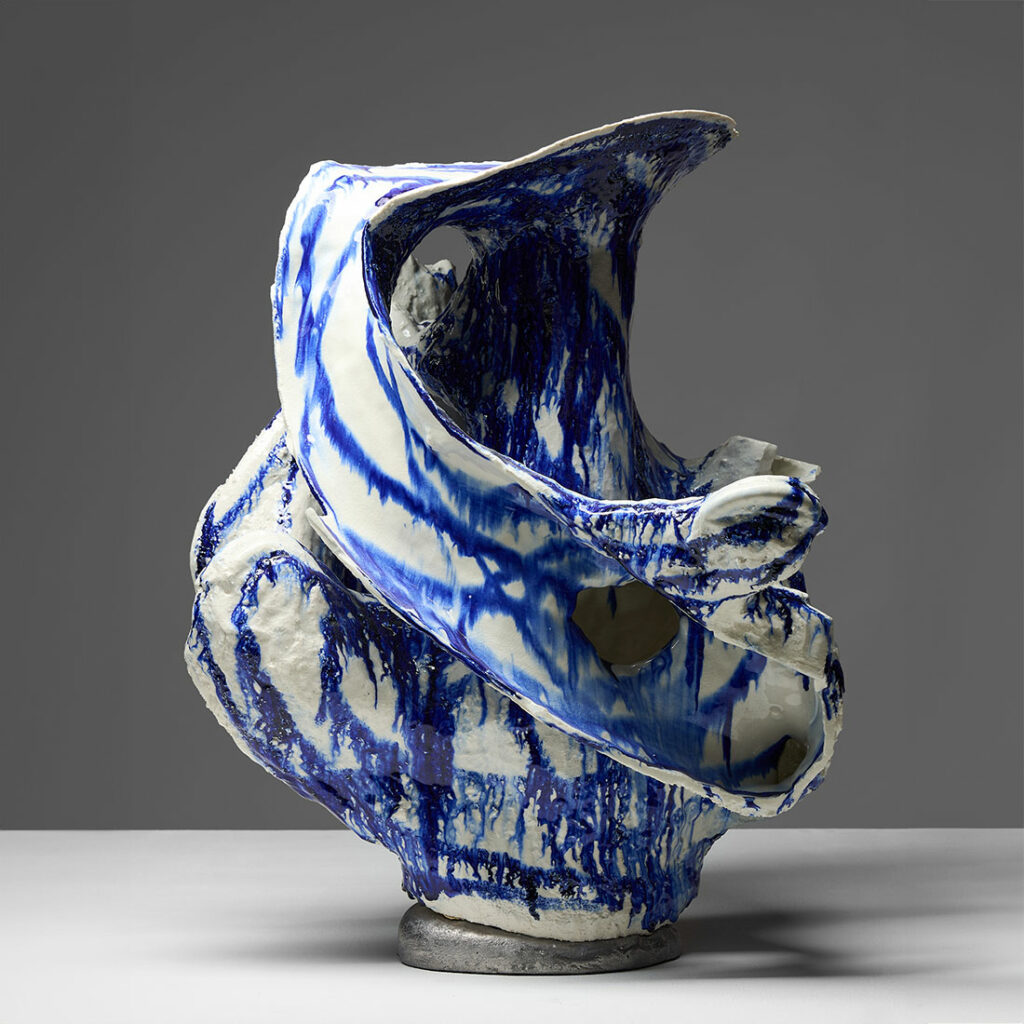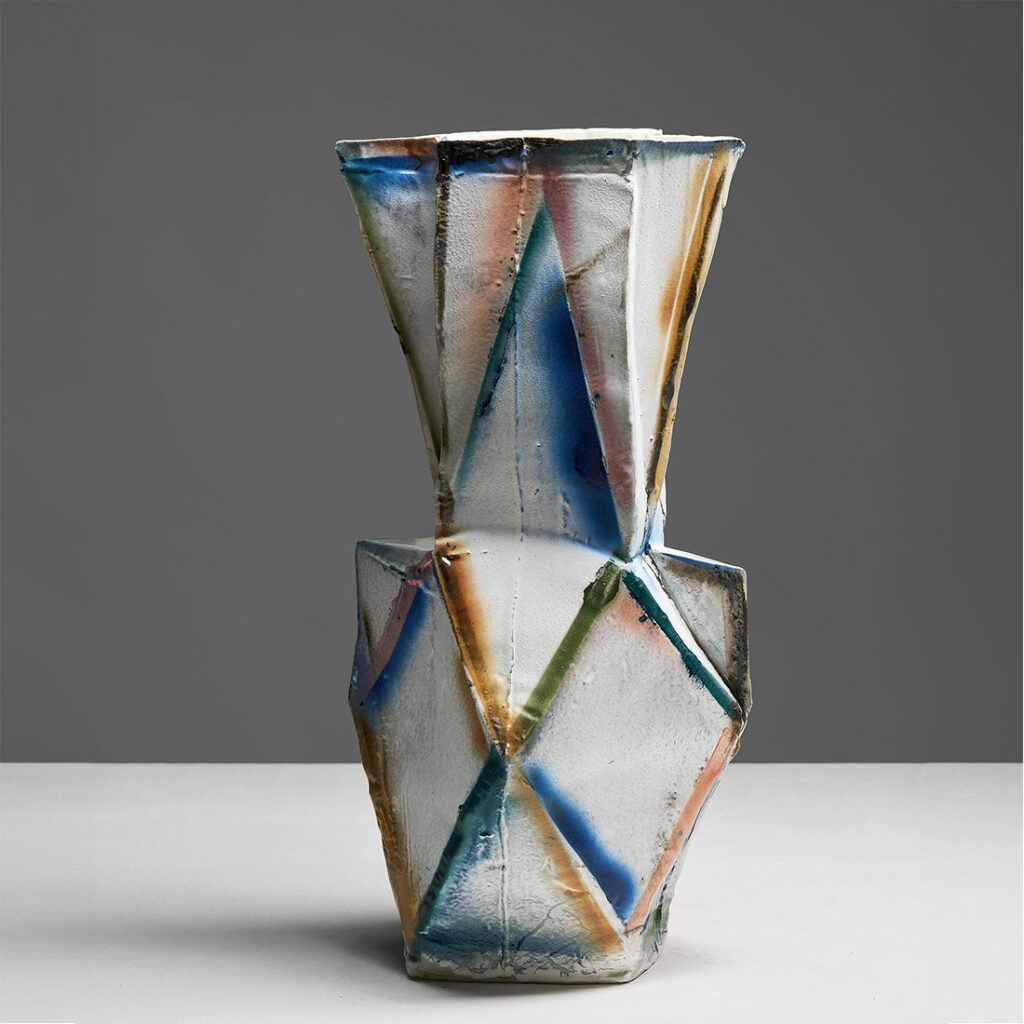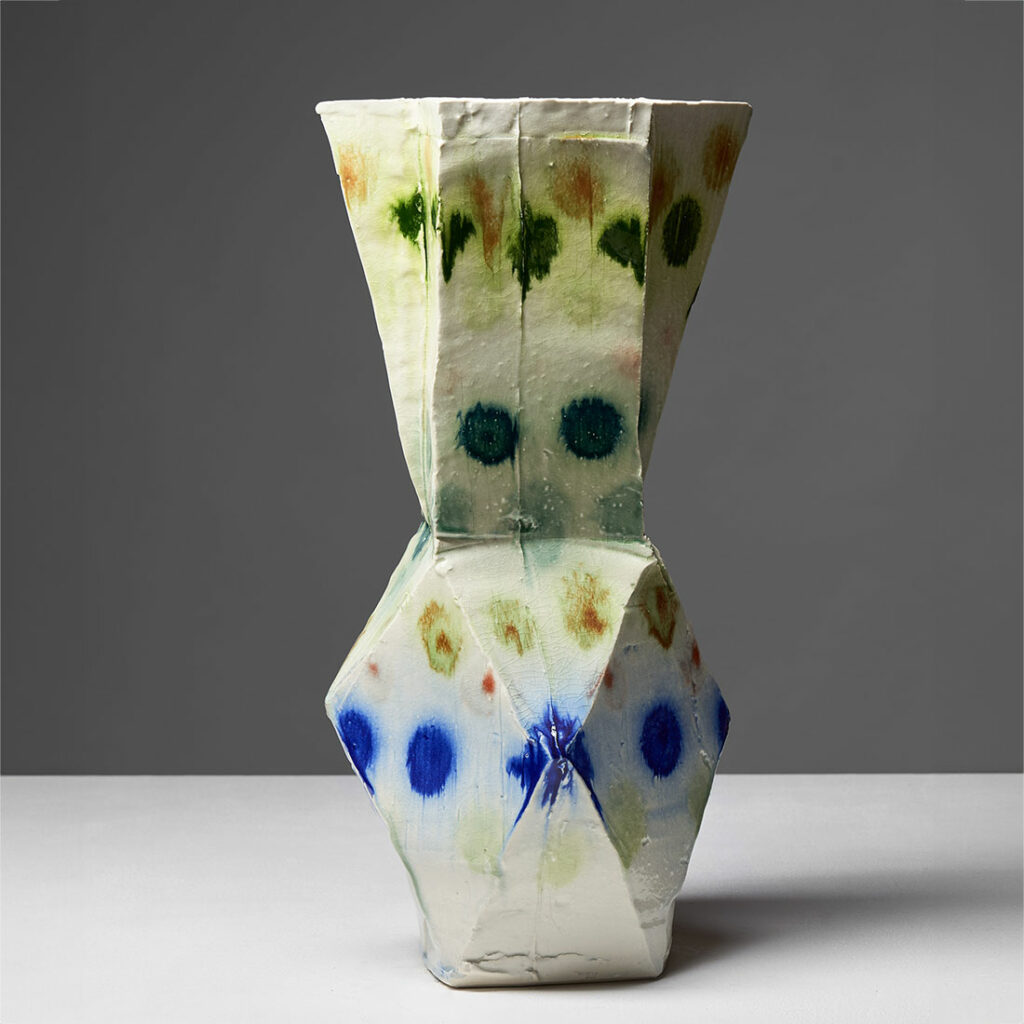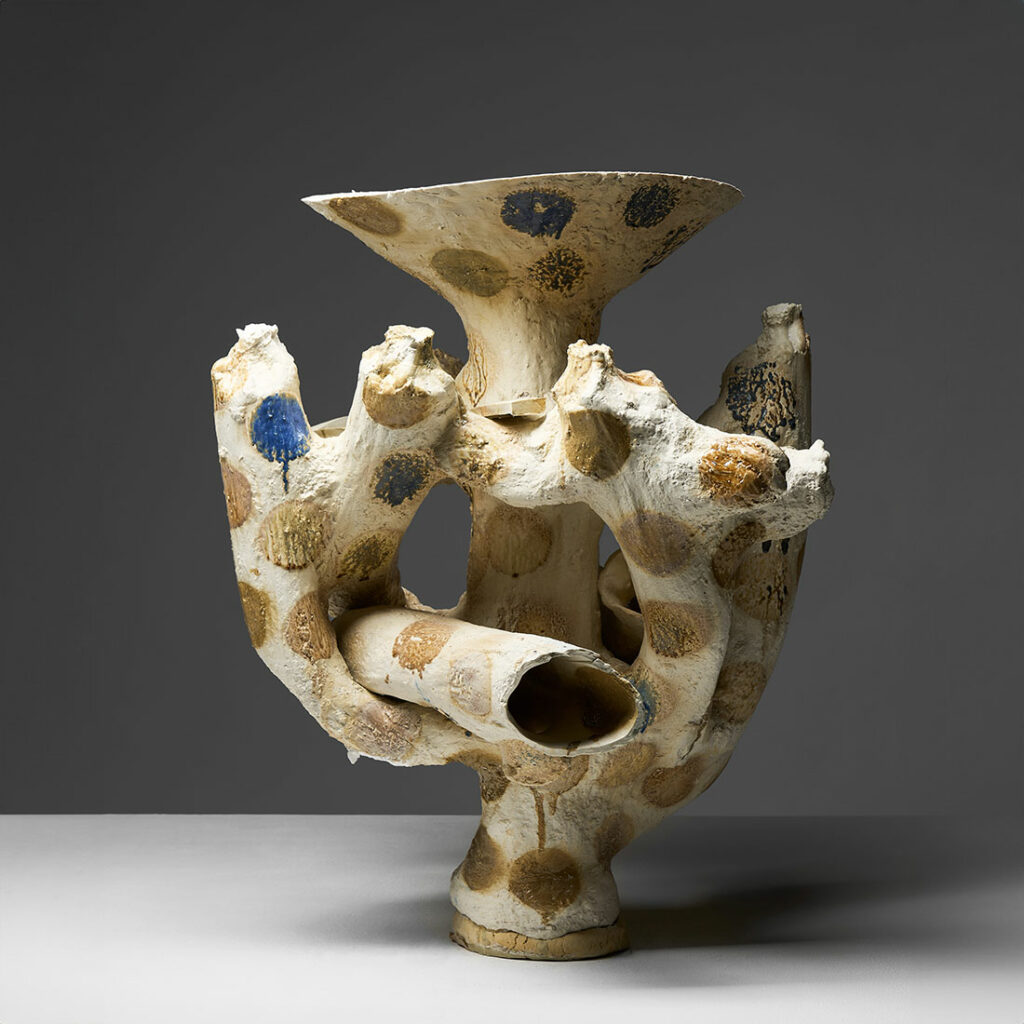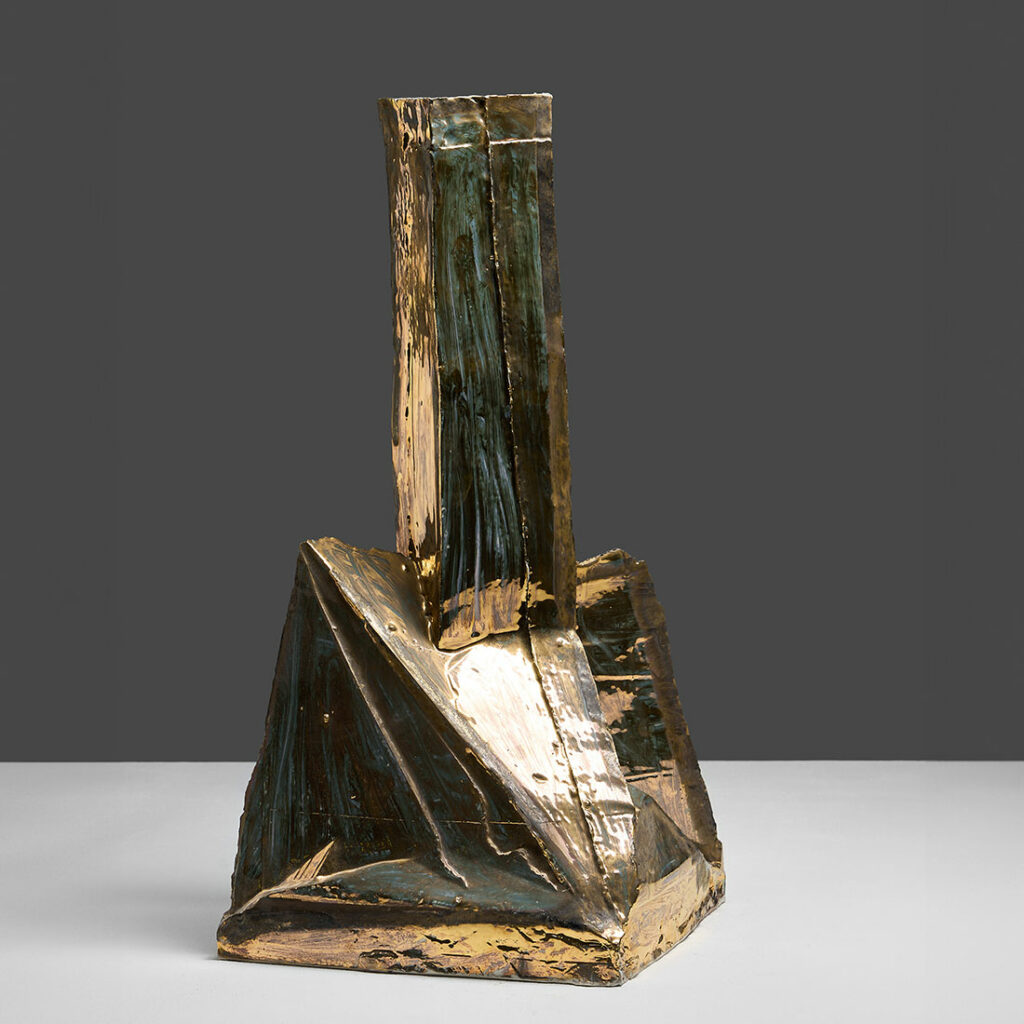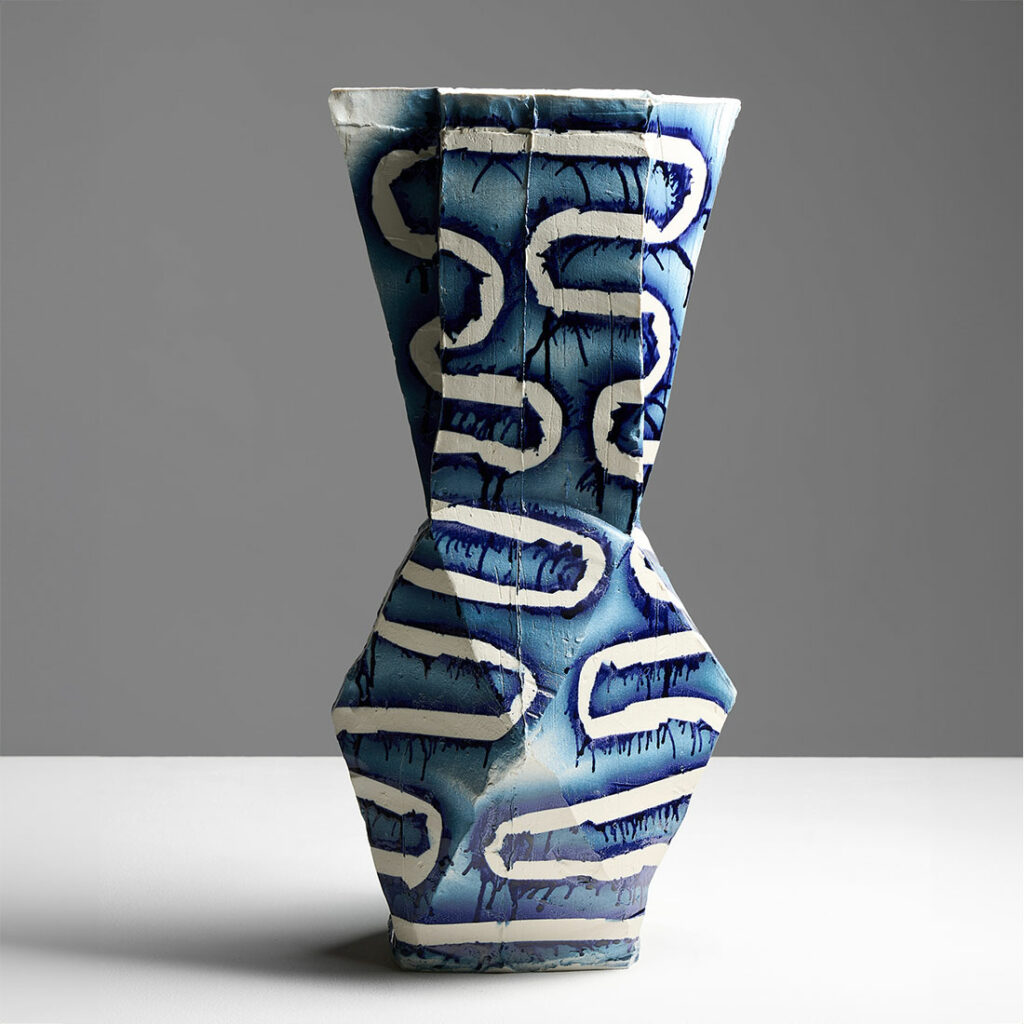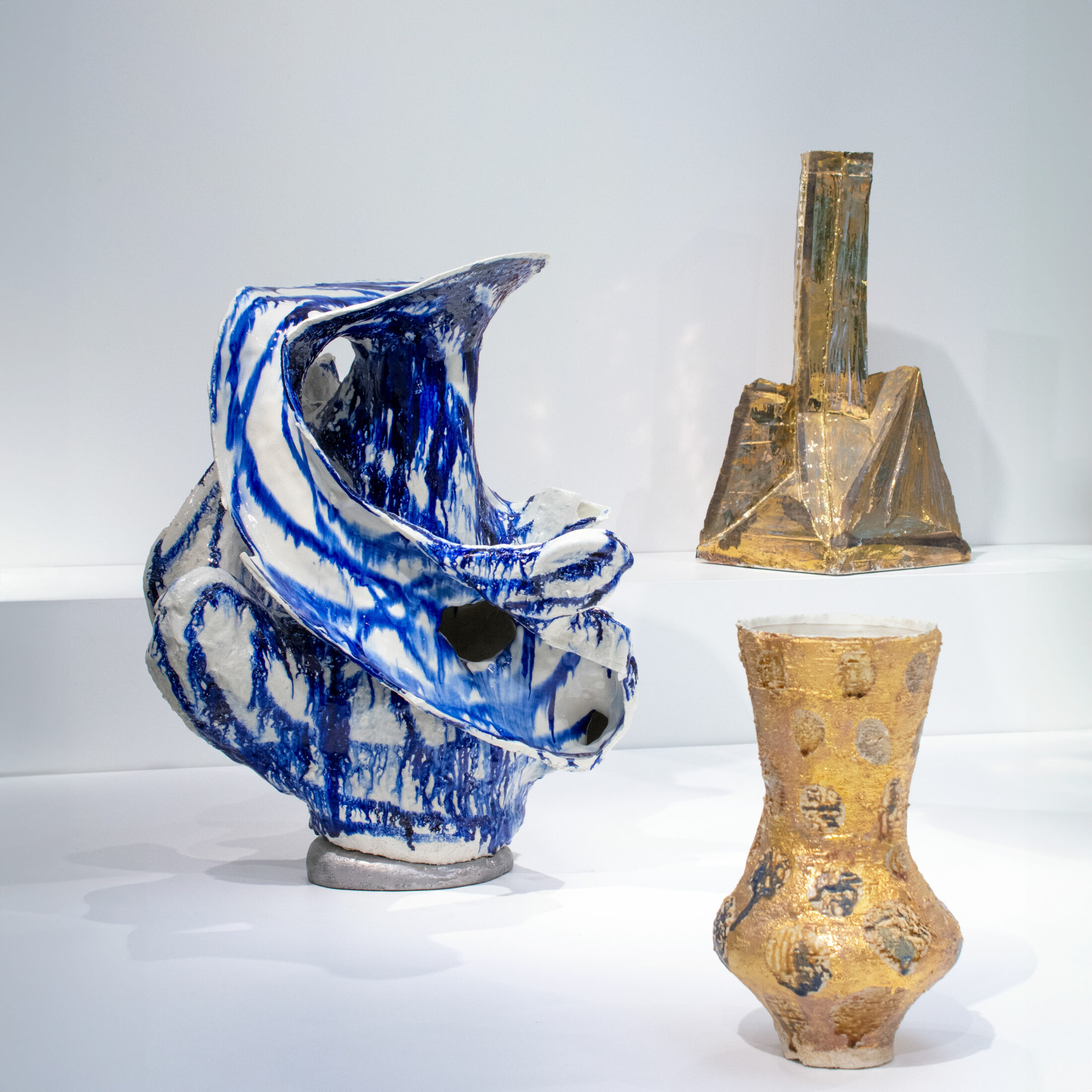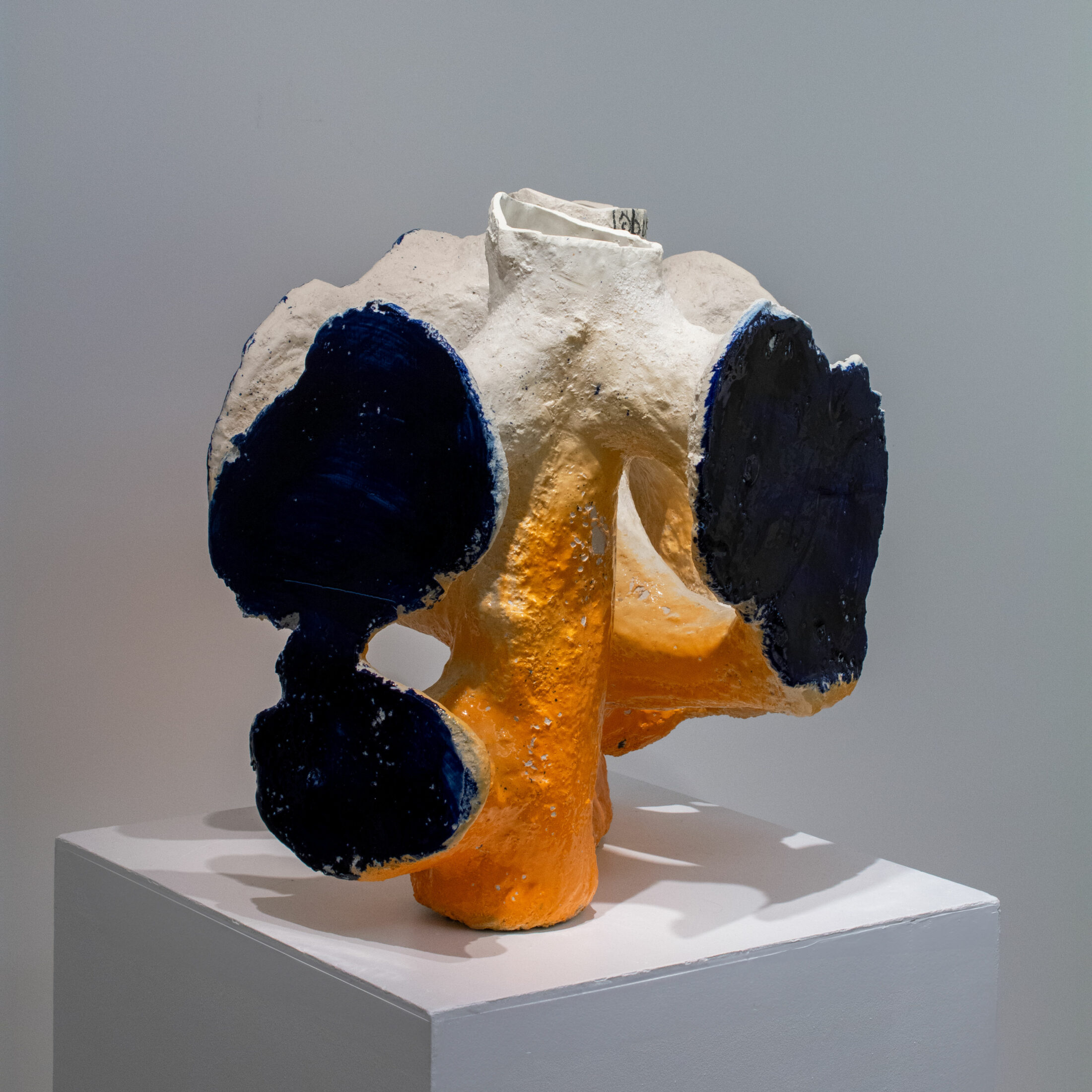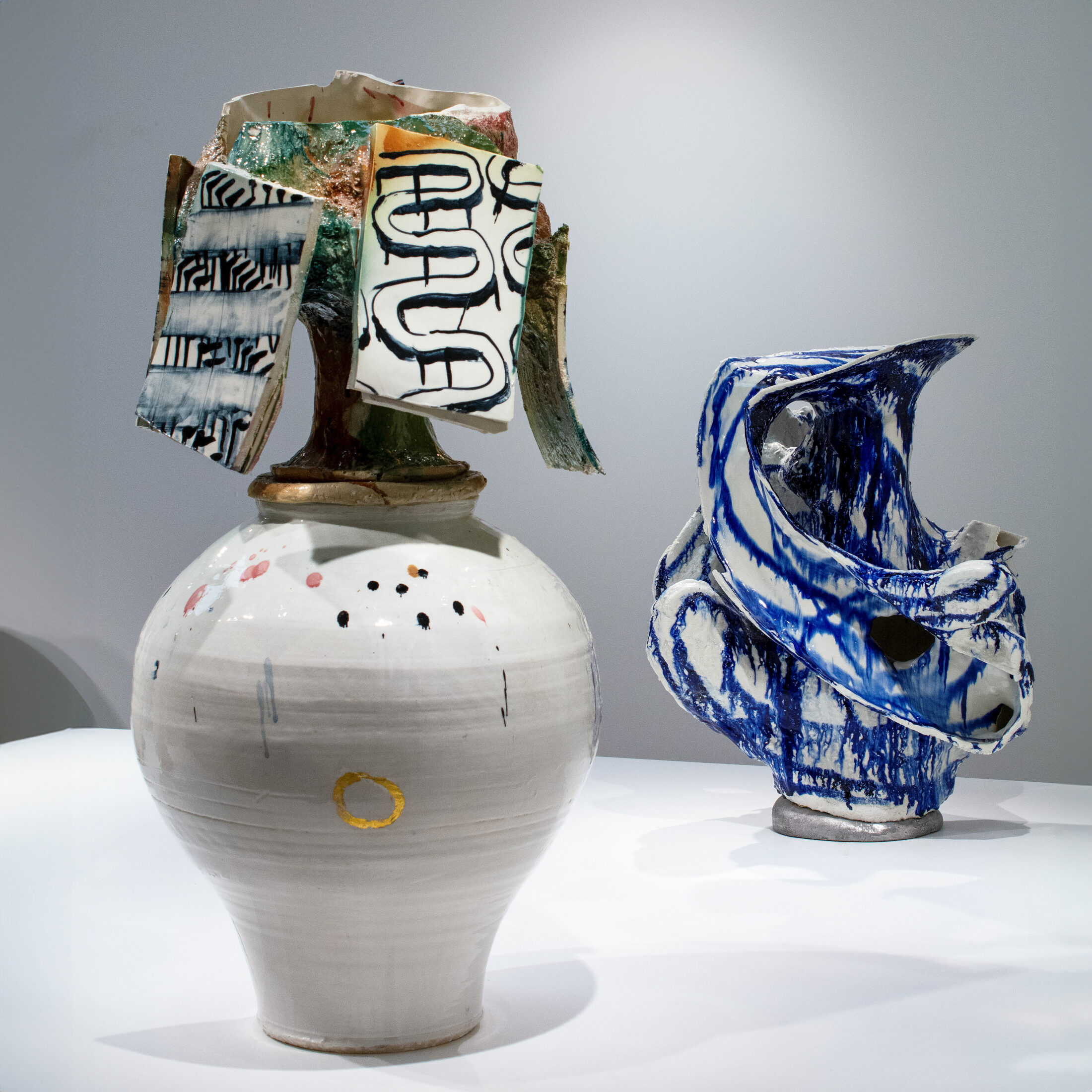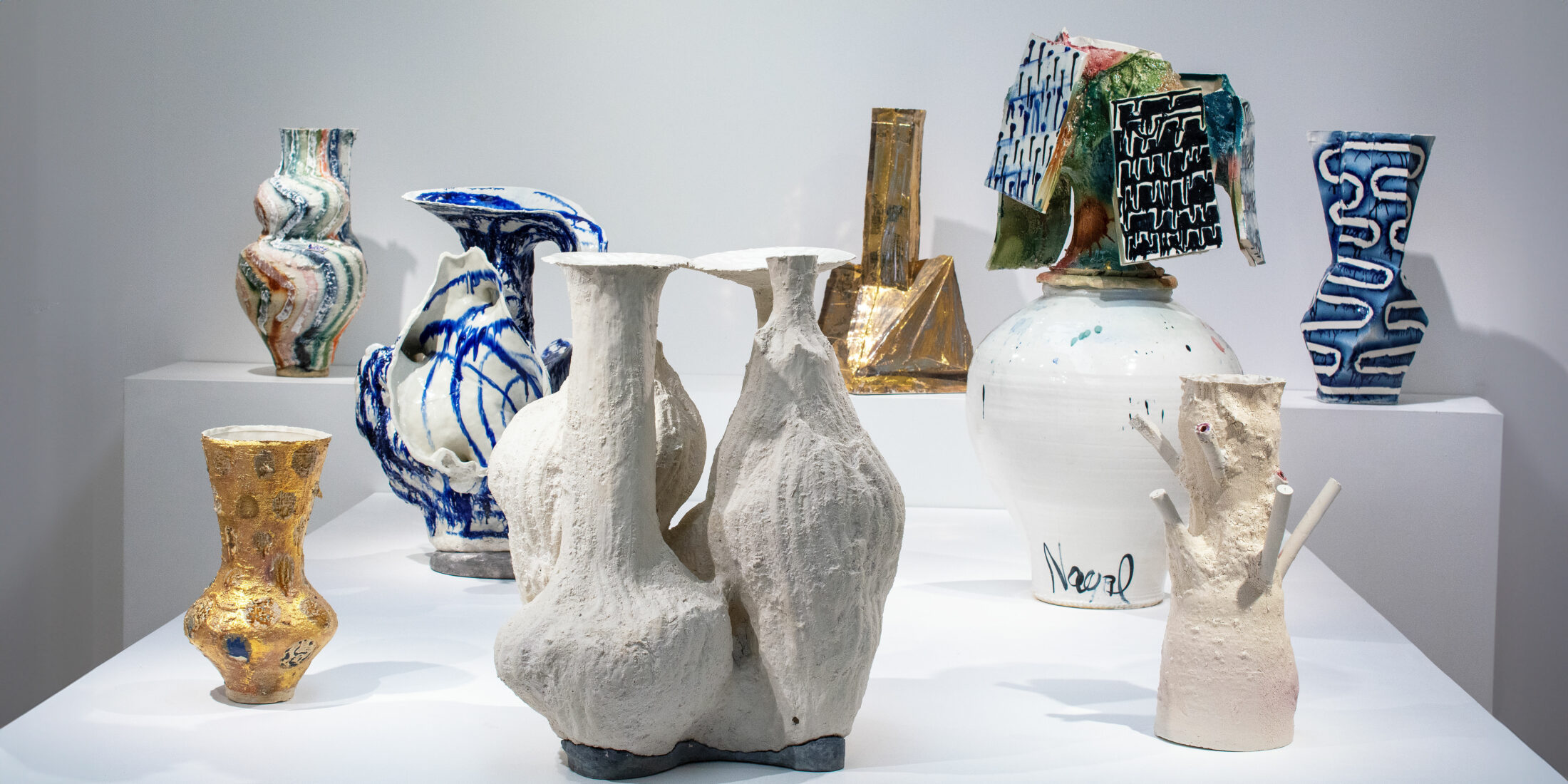
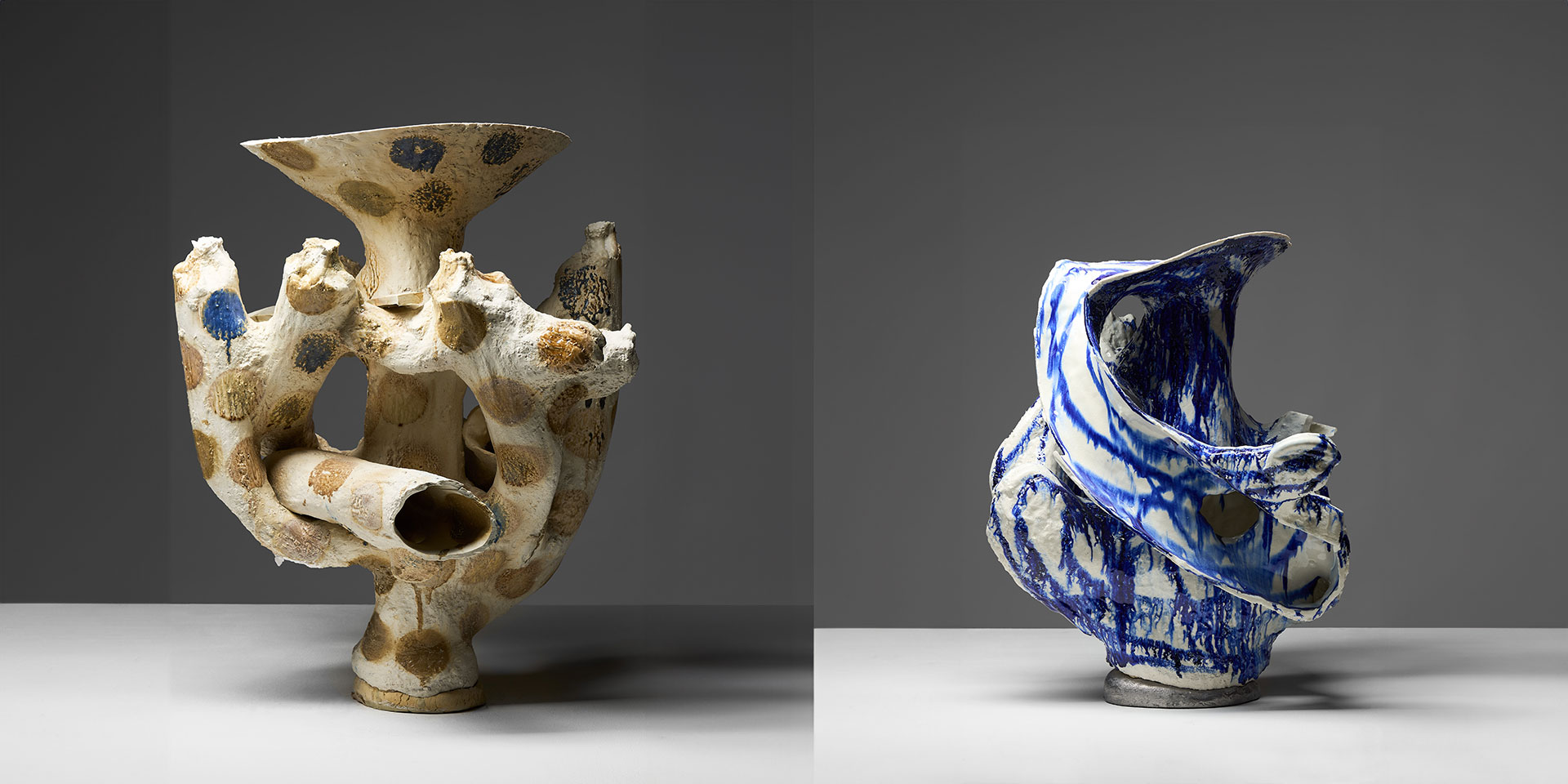

Johannes Nagel
Cutting Edge
October 30
→
December 14
16 rue de l'Arcade,
Paris
(France)
About the event
Monumental, improvised, fragmentary, deconstructed... The eclectic sculptures of Johannes Nagel are vessels that resist their purpose of containing anything. It is the ceramics as a functional, domestic or decorative art that the artist questions in a struggle to let beauty triumph over utility. The expression "cutting edge" is a literal description of the process at work behind each of his sculptures, where the action of the blade is crucial. Cutting through the clay, slicing the surfaces, it frees the works from their utilitarian fate and allows for limitless creativity. Thus, starting from the classic architecture of the vase, his sculptural pieces escape toward new possibilities. The artist thus gives birth to unique and spontaneous works, imbued with philosophy and a rare poetic force.
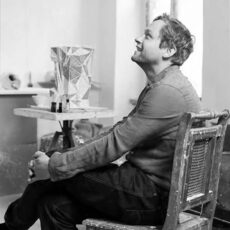
Johannes Nagel reinvents the vase through excavation: he digs into sand with his bare hands, pours in slip, and allows volumes to emerge, more “discovered” than shaped. Between Japanese influences, Bauhaus heritage, and a touch of Californian energy (Voulkos, Kaneko), he composes a form of controlled improvisational ceramics.
Born in Jena, Nagel first trained in Quebec under Japanese potter Kinya Ishikawa, before continuing his studies at the Burg Giebichenstein University of Art and Design in Halle, where he is now based. This background fosters a focus on direct gesture, imprint, and freedom of form.
A decisive shift came with his use of sand molds: holes, tunnels, and intersections create thin walls, openings, and off-kilter profiles. The Stegreif series (“improvisation”) asserts this primacy of instinct while expanding his vocabulary with plaster planes and channel networks.
After demolding, the surfaces are reworked, ranging from deep monochromes to spiral marks, polychrome veils, and lustrous finishes. His compositions evoke both still life (Morandi) and an immediate archaeology: objects born from emptiness, poised at the threshold between the pictorial and the sculptural.
Born in Jena, Nagel first trained in Quebec under Japanese potter Kinya Ishikawa, before continuing his studies at the Burg Giebichenstein University of Art and Design in Halle, where he is now based. This background fosters a focus on direct gesture, imprint, and freedom of form.
A decisive shift came with his use of sand molds: holes, tunnels, and intersections create thin walls, openings, and off-kilter profiles. The Stegreif series (“improvisation”) asserts this primacy of instinct while expanding his vocabulary with plaster planes and channel networks.
After demolding, the surfaces are reworked, ranging from deep monochromes to spiral marks, polychrome veils, and lustrous finishes. His compositions evoke both still life (Morandi) and an immediate archaeology: objects born from emptiness, poised at the threshold between the pictorial and the sculptural.
Press
IC Insight Communications
Jasmine Spezie - Adèle Godet
adele@insightcommunications.cc
Contact
Do you have a message or a request for us?
Write to us at hello@daguetbresson.art
